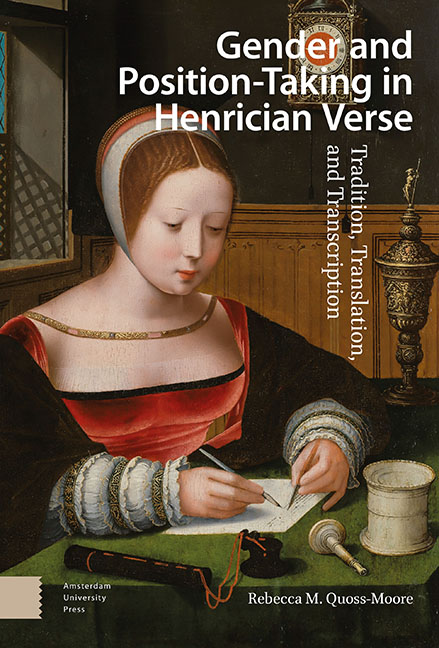Book contents
- Frontmatter
- Table of Contents
- Acknowledgements
- Introduction
- 1 Early Verse Position-Taking in the Henrician Court
- 2 Traditions of Resistance and Verse Position-Taking
- 3 Translation and the Position-Taking Verse Tradition
- 4 Men’s and Women’s Approaches to Translation and Authority in the Late Henrician Court
- 5 Transcription as Translation: Writing the Language of Manuscript Poetry
- 6 Resistance and Unity in the Douglas-Howard Exchange
- Conclusion
- Bibliography
- Index
5 - Transcription as Translation: Writing the Language of Manuscript Poetry
Published online by Cambridge University Press: 13 February 2024
- Frontmatter
- Table of Contents
- Acknowledgements
- Introduction
- 1 Early Verse Position-Taking in the Henrician Court
- 2 Traditions of Resistance and Verse Position-Taking
- 3 Translation and the Position-Taking Verse Tradition
- 4 Men’s and Women’s Approaches to Translation and Authority in the Late Henrician Court
- 5 Transcription as Translation: Writing the Language of Manuscript Poetry
- 6 Resistance and Unity in the Douglas-Howard Exchange
- Conclusion
- Bibliography
- Index
Summary
Abstract: This chapter considers the strategies of transcription in circulated manuscripts, where play on the page is the core concern. Transcription often involved studied revision on a scale ranging from particular pronouns to entire stanzas. Like the practice of translation, transcription was understood as a method through which courtiers could reimagine a text, making works more immediately resonant with their world. The imaginative engagement with the text is of a different sort than that in translation alone, though, because the text can be more explicitly rearranged or broken apart to join with other texts. This chapter examines the products of the Devonshire manuscript as a collaborative project where transcription unites with multiple authorship.
Keywords: Devonshire Manuscript; Tudor verse transcription; Margaret Douglas; Mary Shelton; Mary Fitzroy; early modern women’s writing
As established in the previous section, courtiers’ practice of adapting translation to express frustration in the Henrician court has received a great deal of critical attention since Stephen Greenblatt first outlined the practices of ‘courtly making’; more recently, attention turned to the ways in which transcription might serve similar purposes. Largely independent of this question, research has also begun to explore the ways that manuscript production could create and strengthen communities and the contributions of women to that production. Here, I want to demonstrate how we can unite these threads to reinterpret both how manuscript production was used, particularly by women, and, as a result, how we might re-read translations by the more thoroughly researched courtly makers like Wyatt and Surrey. Alongside comparison to translated work by courtly women like Elizabeth and Lumley, we can use new understandings of manuscript work to better contextualize those thoroughly studied translations as working within the larger position-taking system outlined in this project, both informed by and informing other writers’ strategies of verse production and courtly critique.
Speaking of the Devonshire Manuscript specifically, Arthur F. Marotti articulates the collection’s function as ‘the medium of socioliterary intercourse within a restricted social group’—an exemplar, of sorts, of his larger arguments that manuscript verse ‘was embedded in specific social situations’ to which writers responded ‘in terms of shared sociocultural assumptions’.
- Type
- Chapter
- Information
- Gender and Position-Taking in Henrician VerseTradition, Translation, and Transcription, pp. 163 - 200Publisher: Amsterdam University PressPrint publication year: 2023



